Home of UT
Materials Science and
Engineering
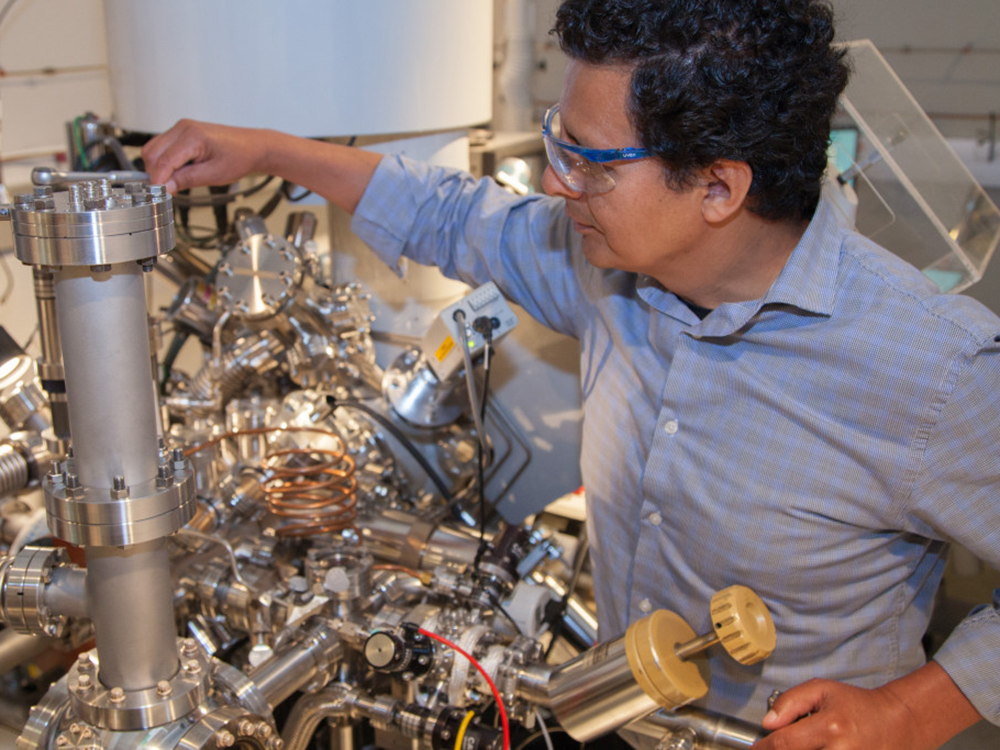
Core Faculty
TMI's core faculty lead cutting-edge research by running their grants through the institute, fostering collaboration and resource sharing.
Learn More
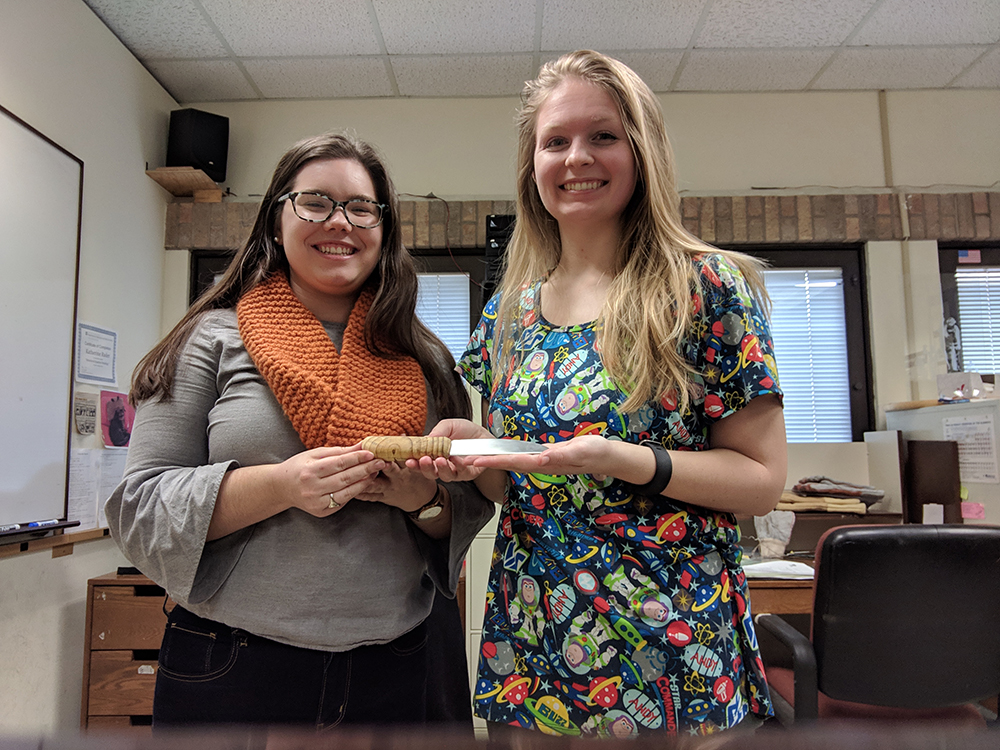
Graduate Program
Our Materials Science and Engineering program is one of the best in the nation, and our graduates go on to be leaders in their fields.
Learn More
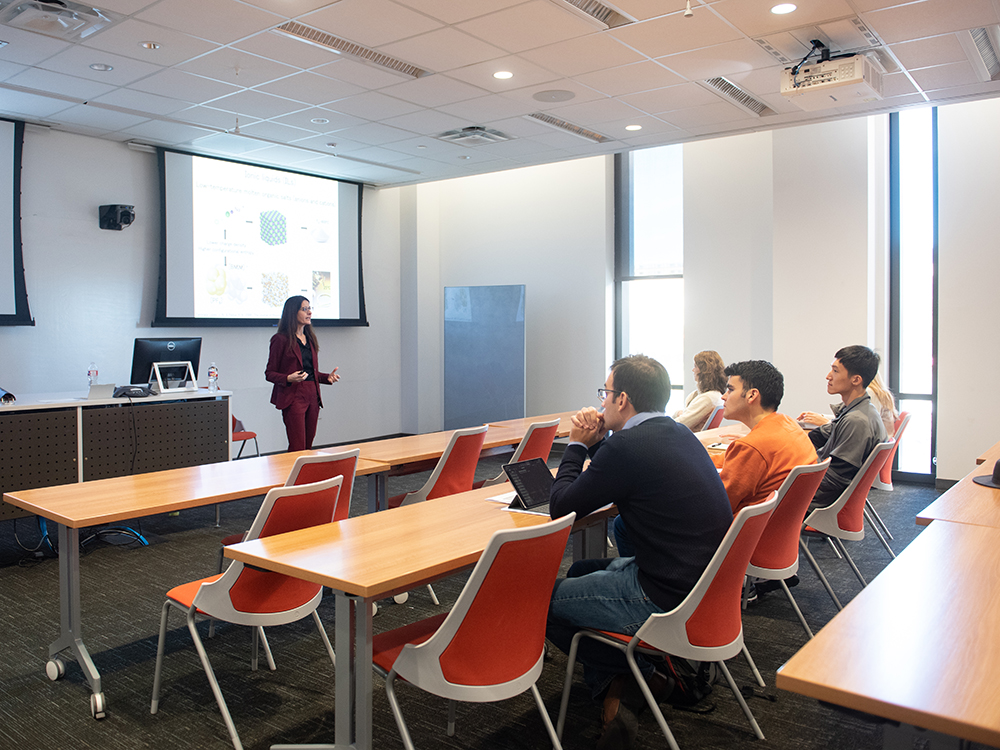
Research
TMI supports interdisciplinary research at UT Austin, with over 100 faculty focusing on clean energy, nanotechnology, and advanced materials using our state-of-the-art facilities.
Learn More
Home
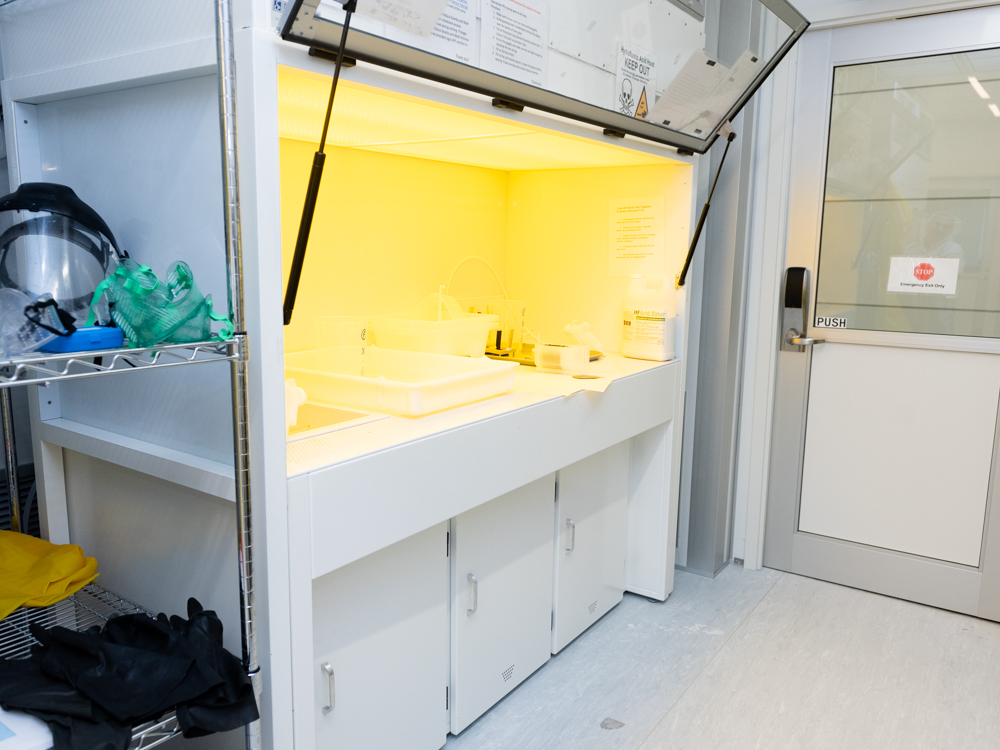
HF Hood
Information the Equipment Can Provide
Hydrofluoric acid is a clear, colorless liquid which is an extremely dangerous material in all forms, including vapors and solutions.
Chemicals approved for use in the TMI’s cleanroom HF hood:
- Buffered oxide etchant (BOE), Buffer HF improved, solution UN2817, Transcene (mixture of ammonium hydrogen difluoride, hydrofluoric acid and water)
- Hydrofluoric acid (48 wt. %), 7667-39-3
Usage of any other mixtures with HF will have to be approved by the facility manager.
Supporting Documents:
Fees and Policies
There are no fees associated with using the HF Hood, except the cleanroom entry fee.
Do not attempt to use the HF hood without prior training.
Hydrofluoric acid-based processes can be performed only between 8:00 AM to 5:00 PM, Monday through Friday.
Always work in pairs, reserve the HF hood in FBS and start timer.
To become a new user of this facility, please read the Instrument Reservation Information page. If you are already a user you can make a reservation in FBS.
To become a user of this instrument you must first complete the Cleanroom Safety Class. Please contact the facility manager to schedule a training session.
Rigaku Miniflex 600 Diffractometer I
Information the Equipment Can Provide
The MiniFlex 600 is a fast, powerful, compact benchtop x-ray diffraction system. Its capabilities include identification of crystalline phases, crystallinity, crystallite size, crystal structure determination. Sample holders for air/moisture sensitive sample are available.
Fees and Policies
- UT Users: $5/hour
- Higher Education/State Agencies: $17/hour
- Corporate/External Users: $17/hour
To become a new user of this facility, please read the Instrument Reservation Information page. If you are already a user you can make a reservation in FBS.
Rigaku Miniflex 600 Diffractometer II
Information the Equipment Can Provide
The MiniFlex 600 is a fast, powerful, compact benchtop x-ray diffraction system. Its capabilities include identification of crystalline phases, crystallinity, crystallite size, crystal structure determination. MiniFlex 600 II is equipped with an automated 6 position sample changer with sample spinning capability.
Fees and Policies
- UT Users: $5/hour
- Higher Education/State Agencies: $17/hour
- Corporate/External Users: $17/hour
To become a new user of this facility, please read the Instrument Reservation Information page. If you are already a user you can make a reservation in FBS.
Apreo 2C loVac SEM
Information the Equipment Can Provide
Coming soon
Fees and Policies
- UT Users: $31/hour
- Higher Education/State Agencies: $54/hour
- Corporate/External Users: $46/hour
To become a new user of this facility, please read the Instrument Reservation Information page. If you are already a user you can make a reservation in FBS.
To become a user of this instrument you must first complete the Cleanroom Safety Class. Please contact the facility manager to schedule a training session.
Page 1 of 47
Texas Materials Seminar Series
The Texas Materials Seminar Series features MSE 397 Seminars, TMI Distinguished Lectureships, and TMI Special Seminars, where leading faculty and professionals from around the world share cutting-edge innovations and advancements in materials engineering with our students.
Learn More
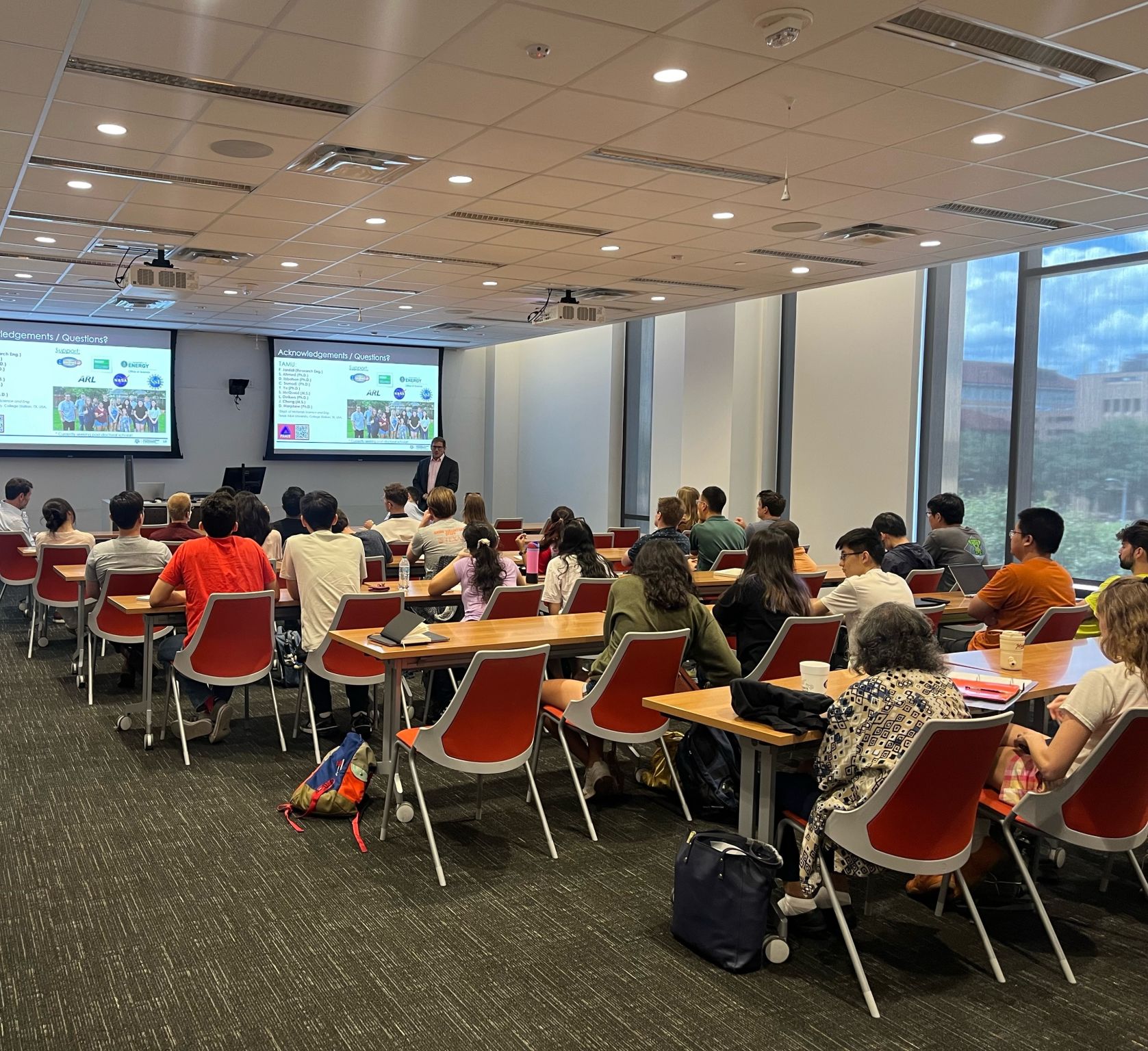
News
Alexander Demkov elected as MRS Fellow

Dr. Alexander Demkov, a professor of Physics, an associate faculty member of the Oden Institute, and one of the Texas Materials Institute's Core Faculty, was elected as 1 of the 18 MRS Fellows for 2026.
MS&E Graduate Student Publishes on Connection Between Battery Use, Recharging, & Interface Flattening

Tushare Telmasre, a graduate student in the Materials Science & Engineering Program, has recently published an article in ECS Advances that explores the connection between battery usage, recharging, and the surface of the zinc anode. A student in Dr. Venkat Subramanian's lab, Telmasre, along with postdoctoral researcher Dr. Lubhani Mishra, and other UT researchers from the CMES Lab, the paper finds that how a battery is used and then recharged directly impacts the surface of the anode and dendrite growth.
AirGel Takes Top Prize and People’s Choice Award for Innovative Water-Harvesting Device

*Reposted from UT News*
Weixin Guan and Yaxuan Zhao, graduate researchers with the Texas Materials Institute and the Walker Department of Mechanical Engineering at UT’s Cockrell School of Engineering, were recognized for their innovative and cost-effective device, AirGel, which extracts drinking water from humidity in the air. Their invention also won the competition’s People’s Choice Award and received a USPTO Patent Acceleration Certificate from the U.S. Patent and Trademark Office.
$2.5 Million Grant Awarded to Deji Akinwande for Wearable Health Technology

Dr. Deji Akinwande, a professor in Electrical and Computer Engineering department and an affiliate of TMI, was awarded a contract of up to $2.5 million from the Advanced Research Projects Agency for Health (ARPA-H), a governmental agency aimed at funding research that supports biomedical and health breakthroughs. This award will help advance Dr. Akinwande's development of a wearable blood pressure monitoring system, a key vital sign for assessing cardiovascular health.
Team from Samanta Group Publishes on DNA Tweezers & Enzyme Control

Dr. Devleena Samanta, a faculty affiliate of Texas Materials Institute, and a small team from her lab, have recently published a new article introducing the use of single-moledule DNA tweezers (SMDTs) to control enzymes and turn them on and off. Dr. Shivudu Godhulayyagari, a postdoctoral fellow, and Sara Nixon, a graduate student in chemistry, developed this new way to control enzymes without needing to change the enzyme itself.
$12M+
In Grant Funding
20+
Research Patents
10K+

